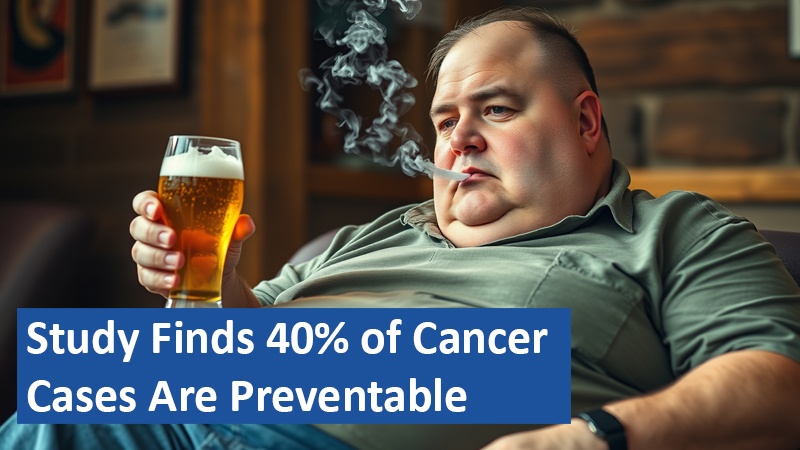A recent study by the American Cancer Society reveals that approximately 40% of cancer cases in adults over 30 in the U.S. are linked to preventable risk factors. Lifestyle choices such as smoking, poor diet, and lack of exercise are key contributors to this staggering statistic. The findings highlight the critical role individuals can play in reducing their cancer risk.
By Julian James
Major Preventable Risk Factors

The study identifies smoking as the most significant contributor to preventable cancer cases, followed by obesity, alcohol consumption, and lack of physical activity. Dietary factors, such as consuming red and processed meats while neglecting fruits, vegetables, fiber, and calcium, also play a role. Additional risks include excessive UV exposure and certain infections, like HPV and hepatitis B, both of which can be mitigated through vaccination.
The Underrated Role of Obesity
While the dangers of smoking are well-known, the study underscores the substantial impact of obesity on cancer risk. Obesity significantly increases the likelihood of developing breast cancer (post-menopause), colorectal cancer, and esophageal cancer, among others. For cancers such as uterine and kidney cancer, nearly half of all cases are attributable to obesity. The study emphasizes that the greater the obesity, the higher the risk.
Proactive Measures to Reduce Risk
Healthy lifestyle changes can greatly reduce an individual’s cancer risk. Smoking cessation alone can decrease the risk of lung cancer by 20 times compared to continued smoking. Similarly, moderate physical activity and dietary improvements, such as reducing alcohol consumption and eating more nutrient-rich foods, can have a profound impact. Vaccinations against HPV and hepatitis B further reduce the risk of virus-related cancers.
A Call for Collective Action
The study’s authors urge policymakers to create environments that encourage healthier choices. Strategies include increasing tobacco and alcohol taxes, regulating advertising for these products, and promoting public health campaigns. Such measures could make it easier for individuals to adopt healthier habits, potentially preventing thousands of cancer cases each year.
The study underscores the profound impact of lifestyle choices on cancer prevention, showing that many cases are avoidable through healthier habits. While individual actions like quitting smoking and improving diet are crucial, systemic changes can make these choices more accessible and sustainable. By combining personal responsibility with supportive public policies, society can significantly reduce the burden of preventable cancers.
Based on content from www.rnd.de and additional research.